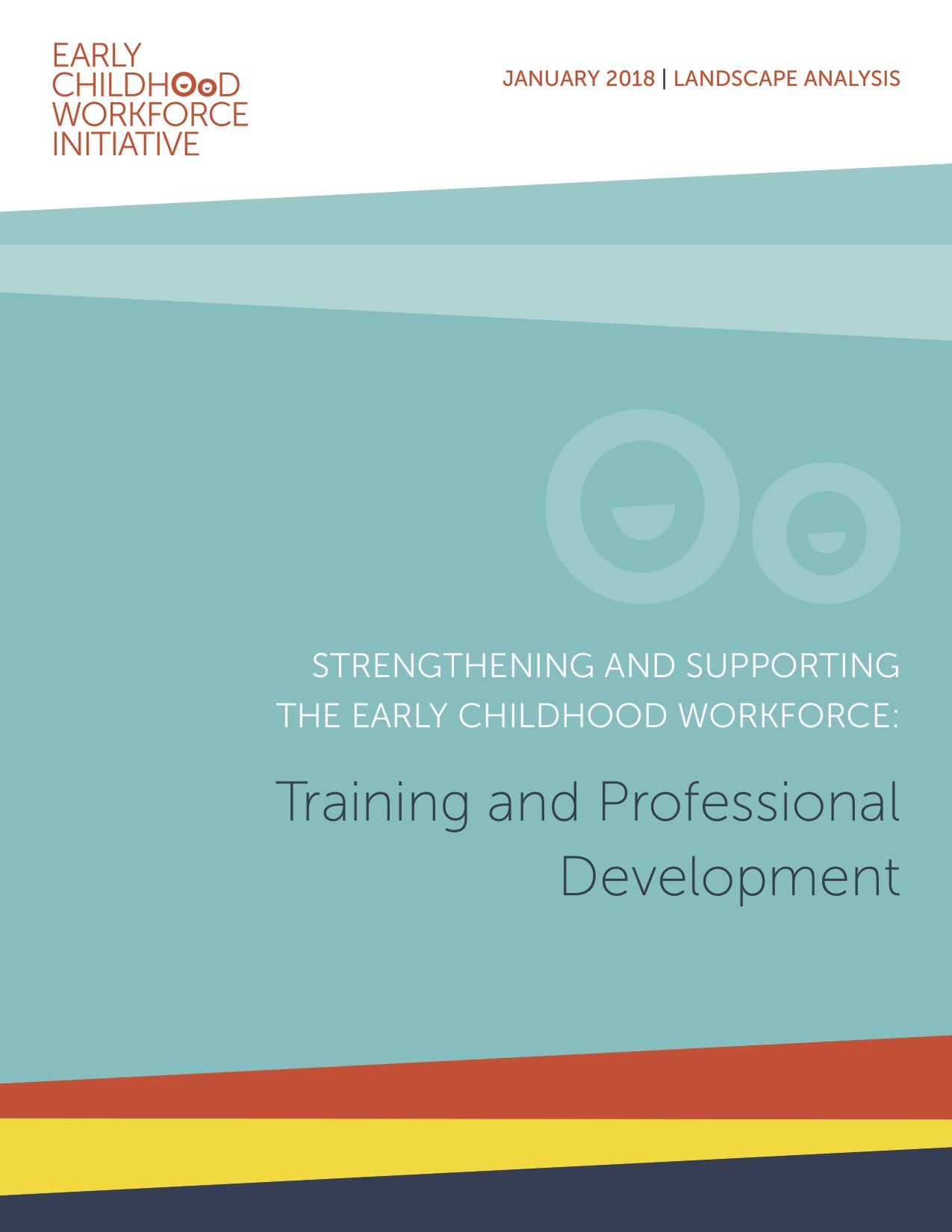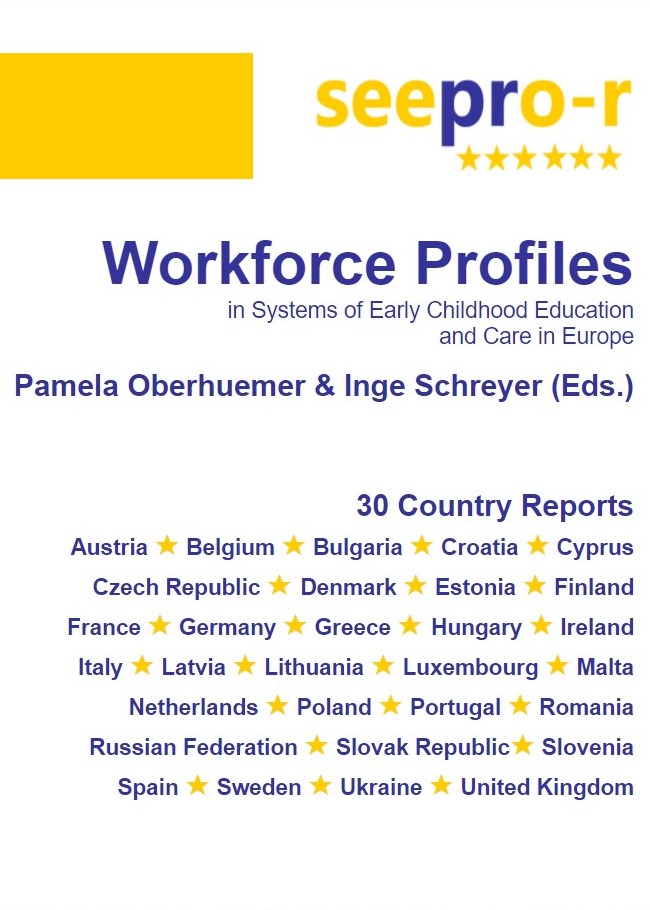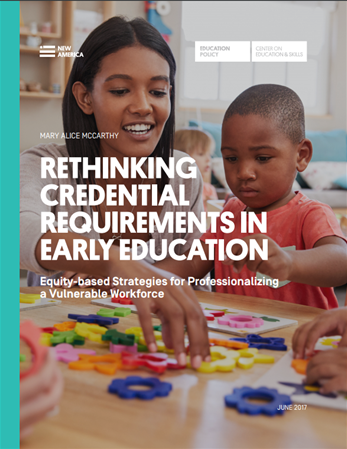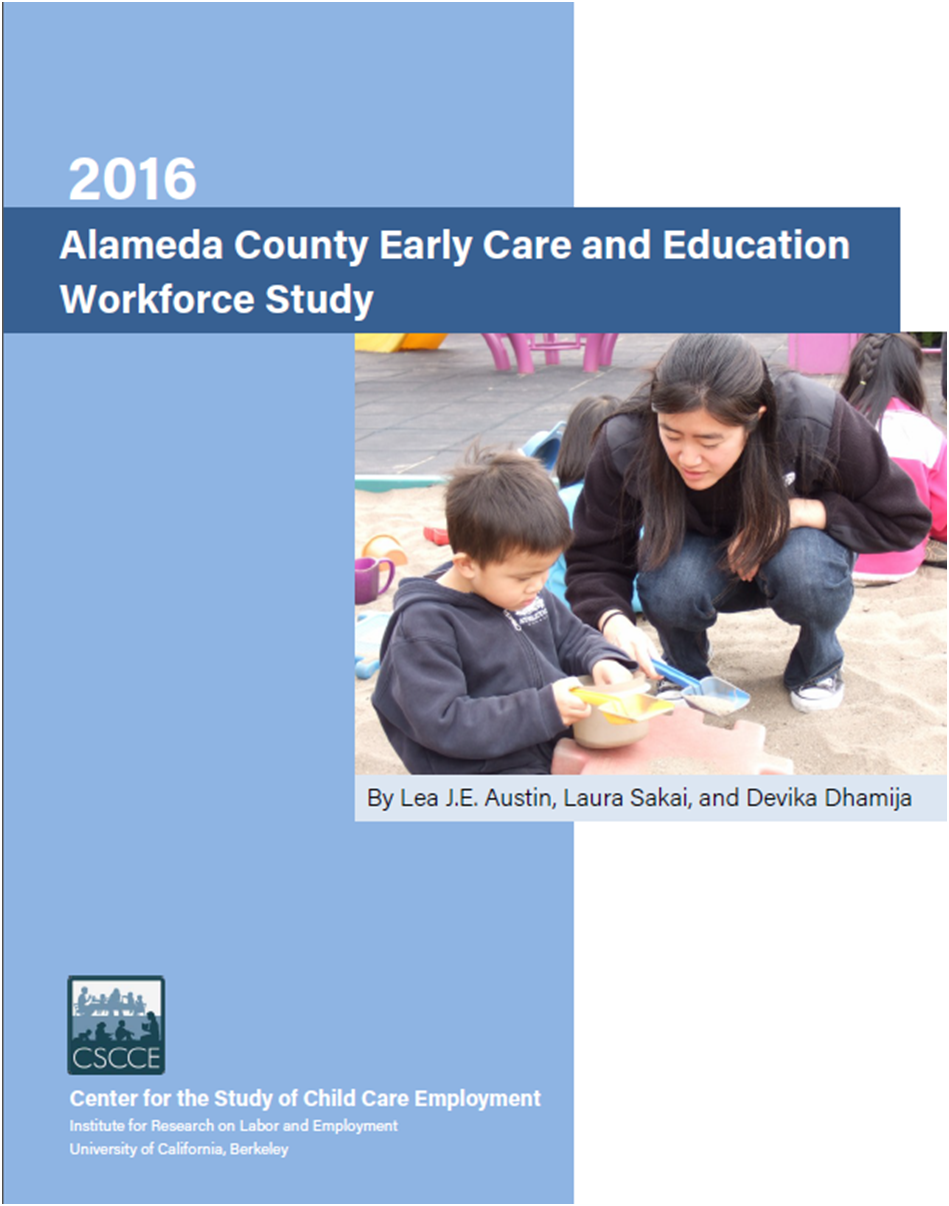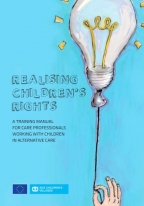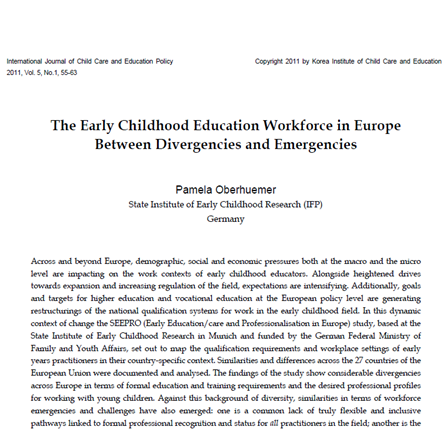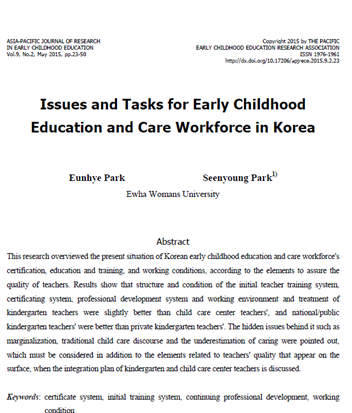Strengthening and Supporting the Early Childhood Workforce: Competences and Standards
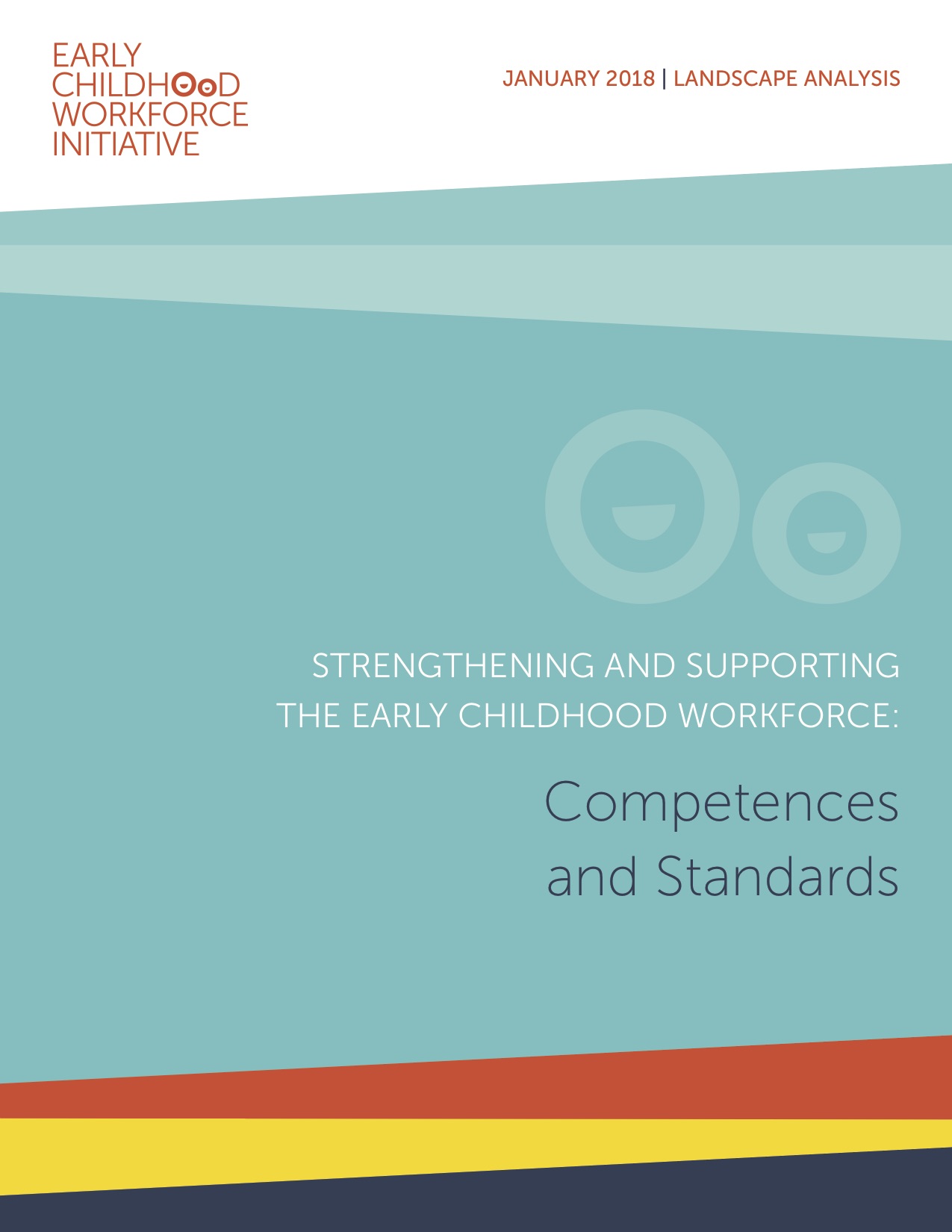
The Early Childhood Workforce Initiative's Landscape Analysis Series takes a deeper look at key questions left unanswered concerning the global early childhood development workforce:
- What do early childhood professionals and paraprofessionals need to know and do in order to perform effectively?
- How do requisite knowledge and skills vary across contexts?
- What types of training and support do staff receive?
- How is the early childhood workforce recruited, monitored, and evaluated?
The first of these analyses, Strengthening and Supporting the Early Childhood Workforce: Competences and Standards, deep dives into competences and standards. Competences and standards were of particular importance to our research because of their ability to:
1. increase the relevance of training and professional development,
2. enhance the quality of monitoring and mentoring opportunities,
3. support professionalization of the workforce, and
4. support workforce planning efforts.
This research, published in January of 2018, used an extensive review of published and grey literature to yield six key findings related to the ways in which countries have used competences and standards to support early childhood systems globally.
You can find the full Landscape Analysis in English below. You may also download the Executive Summary in English, French and Spanish.
www.earlychildhoodworkforce.org


